Incluvie Foundation Gala - Learn More
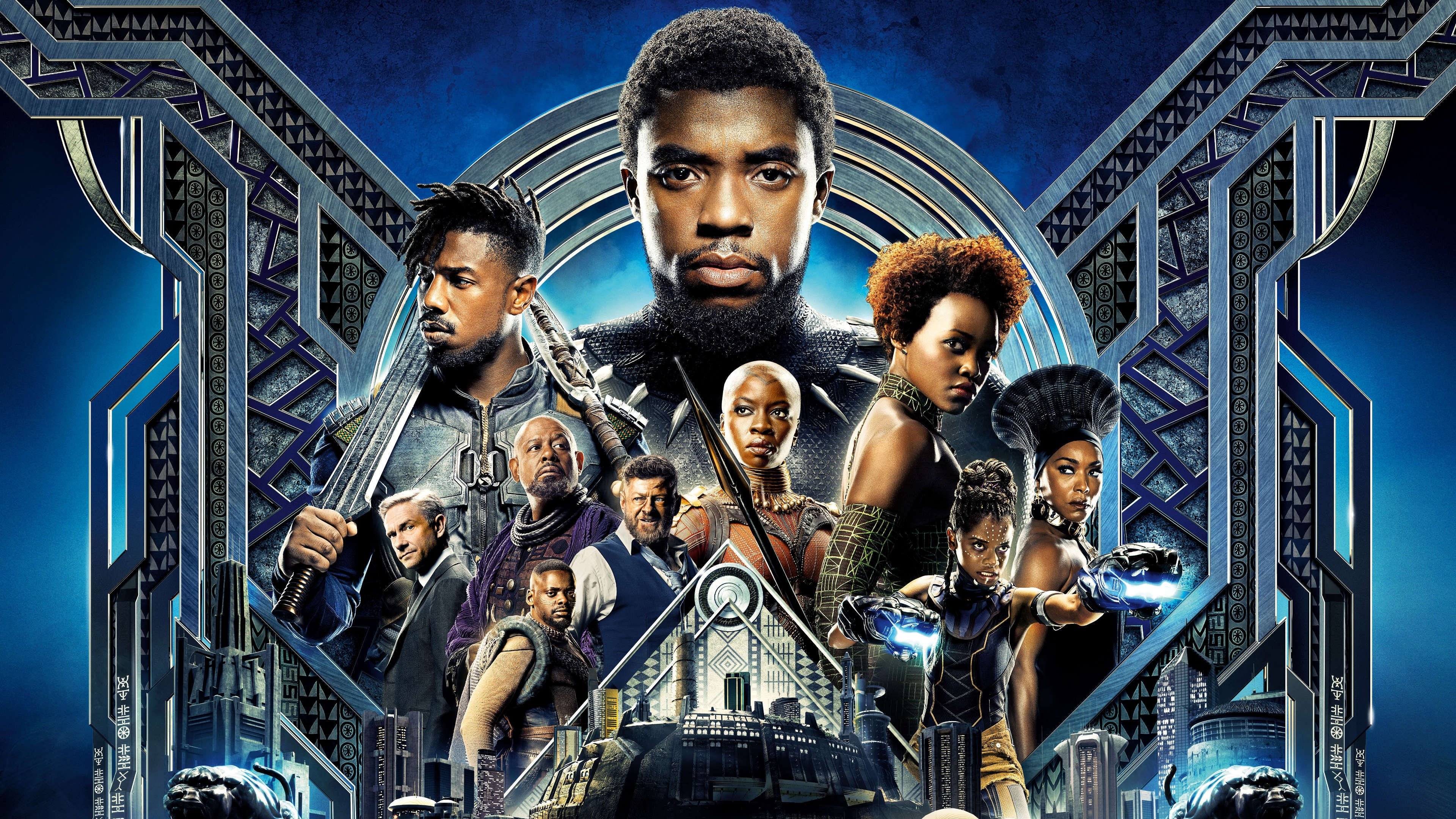


Black Panther (2018)


Incluvie Movie Reviews


Black Panther: Cultural Significance in America
It's pretty clear that Black Panther has more meaning for race and diversity than your average Marvel superhero movie. This movie means a lot in terms of black pride and representation - and has much cultural significance in America as a whole.
Personally, I loved the diversity and representation. However, I disliked how the plot centered on a Wakanda-Wakanda conflict. I realize that this movie was based on a Marvel comic, but I wish Marvel could’ve picked a different storyline for the first Black Panther movie. Many people take Wakanda to represent beautiful Africa. Outside of Wakanda’s fictional reality, there is already so much negative publicity around intra-African conflicts, wars, and struggles. I don’t like the fact that the movie fictionally reinforced the stereotype and narrative of African conflict. I would’ve appreciated it if Black Panther fought off an external villain in defense of a unified Wakanda. Such a narrative would’ve had a more positive impact on racial dynamics and diversity, especially given the power of such a blockbuster movie and story. I know the realm of the Marvel universe and saga has its course including the tie-in with the rest of the Avengers, but portraying a story with a unified Wakanda would’ve been that much more inspiring. Black Panther is just so impactful given the current state of movies and society. Overall, I think Black Panther did a fantastic job with the natural representation while still being an exciting superhero movie.
I was so happy that there were such strong black women depicted in the movie. Seeing the character of Shuri, Black Panther’s little sister, shine as a technological genius was empowering. Not only was she feisty, but she was also smart, sharp, and loyal. Watching Okoye’s character was also inspiring. I appreciate how the movie showed both her soft and loving side as well as her top-notch warrior spirit and skills. The way she balanced the conflict of her internal values was very noble and relatable for all. I thought the movie portrayed women of color in a very nuanced and meaningful way.
Not only was Black Panther an excellent superhero movie, but it also brings diversity to the forefront. The reason this movie is so significant for diversity is because it’s the only one. Specifically, it’s the only feature superhero film with such a diverse cast (diversity is defined as an approach away from the typical all-white cast). The fact that all the main characters and stars are black is pretty epic. Because of the rarity of such stories, people take Black Panther to represent so much more than just an action film. In contrast, any film with an all-white cast in traditional European clothing would not be taken by people to represent all of Europe, because such stories are ubiquitous. We need more movies and stories with diversity so that wholesome representations of all humans can be the new normal! Overall, Black Panther did a pretty great job in terms of both action and diversity.
Incluvie Related Articles
'The Marvels' is Actually One of the Best Marvel Movies, No Matter What the Critical Majority Says
December 10, 2023This may be controversial… but The Marvels is actually one of the best movies in the MCU.
Negative Reactions to ‘Barbie’ Reveal the Pressure of Representation
August 27, 2023Barbie has been the subject of much speculation, hatred, and heartfelt appreciation during the weeks that followed its release. The Internet seems to be still talking about it just as much as it was a month ago. It tells the story of how Stereotypical Barbie (Margot Robbie) starts experiencing human feelings and bodily flaws. Weird Barbie (Kate McKinnon) surmises that this is possibly due to the human playing with her doll in the real world having complicated and sad thoughts. So Stereotypical Barbie goes to the real world in order to help the child who’s playing with her so that she might go back to being plastic and perfect. Ken (Ryan Gosling) accompanies her and this has dire consequences when he returns to Barbieland before Barbie. While Ken discovers patriarchy and goes back home, Barbie is appalled by it and meets her kid, Sasha (Ariana Greenblatt), with hopes of finding some answers.
Barbies of Barbieland imagine their feminist history actually solved the issue of gender politics in the Real World. Sasha tells her about Barbie’s complicated past with body images and Capitalism but rather harshly. Sad and lost, Barbie goes to Mattel in order to complain and there she meets Sasha’s mother Gloria (America Ferrera). Turns out, it’s Gloria’s thoughts that have been haunting Barbie, and not Sasha’s. To provide them comfort, Barbie takes them with her to Barbieland, only to discover that Ken has taken over the land and established a patriarchy. The journey of taking back Barbieland from the Kens has been lauded by many for its take on feminism and femininity and how it celebrates womanhood and sisterhood. But it has been subject to its fair share of criticism as well. Some of it is from disgruntled men like Ben Shapiro who aren’t happy a film with a powerful, albeit confused, feminist message is so popular, but some of it definitely has merit.
“Anti-Men”
By far the most ridiculous criticism of the film claims that it openly despises men. This was primarily men taking to social media in the first few days of the release of Barbie. It was a reactionary stance to take, a response to the women flocking to social media to laud the film for making them feel seen and heard. Piers Morgan (see below) was, not unexpectedly, a spokesperson for this group of men, and there are multiple discrepancies in his criticism of the film. Then there was Ben Shapiro who bought and accessorized Barbie dolls before posing them in their car and doing a photoshoot, which he followed up by burning them. This kind of pettiness doesn’t deserve a space in serious film criticism, but it’s an interesting aspect to study. The film’s ending, although a little complicated and oversimplified at the same time, tries to make a point about toxic masculinity and how having to put up a performance of strength makes the patriarchy detrimental for men as well. So it’s effectively anti-patriarchy and not anti-men, but the aforementioned men and their fans are blissfully blind to this message. Is it because the messaging is too subtle or because a female-led film being so successful challenges their already fragile sense of masculinity and their ego?
Modern Hit Songs from Film Soundtracks
April 18, 2023We have chosen our favorite soundtrack songs from the modern music period (2010+). We hope you enjoy the diverse soundtrack music represented here by artists spanning different genres, countries, and continents.
*Warning, some songs are sexually suggestive, viewer discretion is advised.
Fantasy & Sci-Fi Shows for the Whole Family
February 3, 2023Welcome back, Incluvies!
2023 is proving to be an exciting year for new family-friendly fantasy and science fiction shows. We wanted to list some of our most anticipated shows coming this year. These films run the gamut from high fantasy to spacefaring science fiction. They accomplish what the best speculative fiction stories set out to do: illuminate the human condition with the glow of fire-breathing dragons and lightsabers.
[embed]https://www.youtube.com/watch?v=0-wPm99PF9U[/embed]
Halle Bailey makes waves on the Silver Screen this spring as Ariel in The Little Mermaid. Bailey's beautiful, inside and out, with the voice of an angel. She is sure to capture your heart as surely as she captures the Prince's. The movie comes out in May 2023, but you can check out a snippet of Halle Bailey's version of "Part of Your World on YouTube (above).
'The Woman King': Historic, Majestic, and Empowering!
November 7, 2022Four years ago, the Marvel Cinematic Universe introduced us to the marvelous world of Wakanda in Black Panther. It is a fictional country in East Africa that is secretly the most prosperous in the World. Hidden behind optical shields which protect it from prying eyes from outside, it is a safe haven for its residents. Apart from the shields, Wakandans are protected by the all-female army called Dora Milaje. Not only did the film get raving reviews from fans and critics alike, it even got an Academy Award for Best Picture nomination in 2019. One of my favorite aspects of Black Panther is the representation! In fact, it’s a special film for Incluvie, because the first ever article was about it! Now, all fans universally agree that the Dora Milaje is one of the coolest armies to be seen on screen. Led by Okoye (Danai Gurira), the band of African women can tear down any opposition they face. Well, guess what? There was once a real-life Dora Milaje in 1800s Africa, specifically, in the kingdom of Dahomey. Known as Agojie, they were fierce warriors who were majorly in charge of protecting Dahomey from external threats. History lessons don’t tell their stories, but that will hopefully no longer be the case. Directed by Gina Prince-Bythewood, The Woman King is here to remind the world of the fiercest all-female army that it had conveniently forgotten about.
Dahomey’s enemy, the Oyo Empire has joined forces with the Mahi tribe, and together, they raid Dahomey villages and sell the captives to European slavers. Under their new king Ghezo (John Boyega), Dahomey is fighting back with the attacks primarily orchestrated and executed by the Agojie. Within five minutes of the start of The Woman King, we meet Nanisca (Viola Davis), the current leader of the Agojie in the film. They’re in a Mahi village, where the Dahomey people are being held captive. The Agojie ruthlessly lay siege on the village and rescue the captives. They appear out of nowhere in the middle of the night, and before the villagers are able to properly react, the siege is practically over. They return to Dahomey with the prisoners and the Mahi women too. When they enter the kingdom the next morning, in broad daylight, you see them in their full glory for the first time. Every woman is muscular, carrying heavy spears and swords, and wearing armlets, rings, and belts. Their wardrobes are practical, and they’re dressed in clothes that allow extensive body movement necessary for physical maneuvers during combat. The Agojie marching in unison is a fearful sight for their enemies; a welcome sight for the Dahomey people but an awe-inspiring sight for everyone. Their bodies are like easels for battle scars, souvenirs from their successful daring conquests. And when they shout their battle cry together as a unit, you’re filled with admiration for them. A little trivia: All the stunts are performed by the actresses themselves, and they went through rigorous training to look like they could actually topple two-hundred-and-fifty-pound men. At over fifty years of age, Viola Davis underwent this tremendous transformation and it’s safe to say, she isn’t done paving the way for others by being an inspiration!
While the Agojie march in through the gates of Dahomey, in another corner of the kingdom, a young woman Nawi (Thuso Mbedu) is presented to a much older man by her father. She is supposed to marry him, but she shoves him away when he is disrespectful to her and slaps her. Angered at her behaviour, her father drops her off at the castle, where the Agojie live. They’re greeted at the gates by Izogie (Lashana Lynch) who takes her in and gives her a tour of the premises. We see hundreds of women training, healing, working, and basically, flourishing in a safe space made exclusively for women. Nanisca addresses all the newcomers and the Mahi female prisoners. She tells the Mahi women that they shall not be punished for the sins of their men, and they can leave if they don’t want to join the Agojie. The Agojie women do not participate in romantic or sexual relationships with others and they do not bear children. But, they’re treated with respect, paid for their work, and most importantly, their opinions are heard. “No tribe or Kingdom in all of Africa shares this privilege”, says Nanisca. Despite being stern, Nanisca is kind and welcoming to all the women. You feel comforted by her presence, even when she is rebuking you. But, her strictness is not to be taken lightly. Her fierceness as a warrior translates into fierceness as a leader and teacher. She understands what is at stake and thus, doesn’t entertain any kind of indiscipline.
Could ‘Wakanda Forever’ Be Nominated For Best Picture?
September 8, 2022After the onslaught of comments on Thor: Love and Thunder, Marvel’s next film Black Panther: Wakanda Forever has become the main focus of fans. Obviously, being made after the death of Chadwick Boseman will be a hard but exciting ride for this Marvel entry.
Ever since its predecessor was nominated for Best Picture at the Oscars, the question will be raised of whether or not this film will turn the same trick. It’s very rare for Marvel movies to pull a feat like this off, but it’s not impossible. If Martin Scorsese is right about Marvel films, they are not "cinema" and are only to be viewed as amusement park rides. However, it seems that Black Panther has elevated the genre to a higher echelon than that of children’s entertainment.
Nevertheless, can the Black Panther sequel garner the same success and score a nod for Best Picture?
Disclaimer: This article reflects the views of the author.
Why 'Wakanda Forever' Will be Better Than its Predecessor
August 1, 2022A few days ago, Marvel decided to release the first trailer for Black Panther: Wakanda Forever. Fans are undoubtedly hyped for the premiere of the sequel. It will be a very hard pill to swallow knowing that T’Challa (Chadwick Boseman) will not be returning for the film. It does, however, have a bittersweet sentiment to the film knowing that his sister Shuri (Letitia Wright) will become the next Black Panther and team up with the new Iron Man or, in this case, Ironheart (Dominique Thorne). In the trailer for the sequel, audiences see Shuri taking the throne, or at her brother T’Challa’s funeral wearing an all-white dress. We see Atlanteans under the ocean and attack the people of Wakanda. The emotions of the audience finally come to a head when Ramonda (Angela Bassett), the Queen Mother of Wakanda, goes off and says how she lost her family as the scene cuts to a mural of T’Challa.
There is a lot to unpack in the shots we see in the trailer. However, it is painfully obvious that, as of now, Wakanda Forever is probably the most hyped movie of 2022. I’ll even go as far to say that it will probably be better than the original. Here’s why I believe all of that to be true.
As previously stated, once fans have seen the giant mural of T’Challa as drummers play a backbeat, probably at his funeral, it will be hard knowing that we will never see his Panther on screens again. It’s probably a cinematic loss but it might make the film even more emotional knowing the loss. His presence, or lack thereof, will be more impactful than that of the first film.
T’Challa’s earnestness and energy were felt from his first appearance in Captain America: Civil War to Endgame. A day will never go by when fans don’t think long and hard about the hero in the costume. Fans will quickly be moved at the shift in the guard.
Thank you, Chadwick Boseman: An Incluvie Tribute
December 14, 2021At Incluvie, we provide movie reviews and ratings through a lens of representation. When the world lost Chadwick Boseman on August 28, 2020, we all saw the enormous and powerful impact of representation in film. The announcement of his untimely death on Twitter was the most liked tweet as of August 2020 [Source]. Why? Because Boseman was not only a Black superhero leading a Black cast in one of the most successful films in history; but his successes paved the way for more, long-overdue diversity in Hollywood.
As the industry posts tributes to their friend and colleague, we can only remember him through the grace and integrity he left on screen. Boseman was necessary to the film industry; we needed him. Every systematically oppressed person needed him, and his strong, well-rounded characters. Boseman was more than an extremely talented actor — he was the embodiment of representation’s effect. The writers of Incluvie wanted to do our best to pay a small tribute to his image on screen. Let’s review some of his roles and his impact.
“They’ve Gotta Have Us” Explores the Rise of Black Cinema in Hollywood
November 10, 2021The history of Hollywood is as ugly as it is beautiful. You can go back and look at decades of iconic films that have graced the silver screen, from Gone with the Wind (1939) to Citizen Kane (1941) to North by Northwest (1959). Most notably absent from Hollywood history, however, are Black-produced films. When movies did feature Black characters, they were always written by White writers and directed by White directors. The stories were never centered around Black people focusing on what it means to be Black.
Developed by Simon Frederick, They’ve Gotta Have Us (2018) is a limited series on Netflix that explores the rise of Black cinema in Hollywood. From The Birth of a Nation (1915) to Black Panther (2018), and everything in between, They’ve Gotta Have Us offers a comprehensive and compelling look at Black representation in film and the surge of Black-produced cinema.
I’ve mentioned before that some of my favorite classes I took in college were film history courses. I love contextualizing movies and seeing how every film influenced the next. However, I learned virtually nothing about the parallel history of Black cinema in Hollywood. They’ve Gotta Have Us proves to be incredibly enlightening, exploring so many facets of Hollywood history that were previously unknown to me.
The series features interviews with prominent Black filmmakers such as Barry Jenkins (Moonlight, If Beale Street Could Talk), Laurence Fishburne (School Daze, The Matrix), David Oyelowow (Selma, A United Kingdom), Kasi Lemmons (The Silence of the Lambs, Candyman), John Boyega (Attack the Block, Star Wars: The Force Awakens), Gina Prince-Bythewood (The Secret Life of Bees, Beyond the Lights), Carmen Ejogo (Selma, It Comes at Night), and Robert Townsend (Hollywood Shuffle, The Five Heartbeats).
Going into the series, I would have assumed that Black voices had been suppressed in the industry for decades even if I didn’t necessarily know all of the details beforehand; I had no idea the extent to which this happened. The beginning of the series looks at the early years of Hollywood. The Birth of a Nation (1915) defined the motion picture and shaped everything about what movies are and how they are made. Director D.W. Griffith did not believe Black actors were capable of giving the performances he wanted, so he cast White actors in blackface to play horrific caricatures.
Avengers: Endgame - Looking Back on the Biggest Movie Ever
October 19, 2021Author: Nathanael Molnár, originally published [4/26/2020]
It was Friday, April 26th, 2019. I was sitting in the AMC Dolby Theater, my friends on either side of me. Everyone in the theater was buzzing, excited. A couple of people walked in with light-up arc reactors pinned to their chests. The lights came down, and the iconic Marvel Studios theme blasted through the theater. The audience cheered; everyone was giddy and ready for what we had all been patiently waiting for since May 2nd, 2008. Avengers: Endgame, the fulfillment of the promise of the Marvel Cinematic Universe.
It’s strange to think that Endgame came out a full year ago. I’ve been a fan of the MCU from the very beginning. As a life-long comic book fan, following the unfolding and the blossoming of this entire cinematic universe has been truly magical. It’s something that I’m still surprised we get to see and enjoy. I believe the MCU redefined the comic book movie genre. Comic book movies existed before the MCU and were successful before it. However, under the meticulous leadership of Kevin Feige, the MCU gave us something radically different (current list of all MCU films 2021).
It brought to life the long-form storytelling of comic books, the character arcs that span years, and the meshing of different worlds. In the medium of film, the MCU captured the feeling of reading comic books spanning decades, following characters in their own stories, and then following them into their larger team-ups. Sure, there were the X-Men movies that revitalized the genre when Batman & Robin had essentially killed it. Spider-Man brought whimsy back into the genre, and Batman Begins established realism. It was the MCU that brought consistent continuity, long-form story arcs, and a balance of bombastic spectacle action and genuine character growth and development.
As successful as the MCU became, as popular as The Avengers or Guardians of the Galaxy or Black Panther became, the entirety of this 22 movie experiment hinged on its conclusion. If the MCU didn’t deliver a satisfying conclusion to what this entire thing had been building towards, everyone would have walked away disappointed. Sure, we would still revere the individual films we loved, but the MCU as a whole would have far less significance if Endgame had dropped the ball. On April 26th, 2019, Endgame not only did not drop the ball, but it delivered for fans so much that it went on to become the highest grossing movie of all time!
7 Movies About Police Brutality & Systemic Racism Directed by Black Filmmakers
October 15, 2021Since George Floyd was murdered by police on May 25, 2020, we have seen protests erupt in all 50 states within the United States and 50 countries across the world on every continent except for Antarctica. The United States has sanctioned unchecked police brutality for far, far too long; a symptom of the systemic racism of a country that was built by slaves upon stolen land. Since May 25, the stories of murdered innocent Black people have been shared, as well as countless videos of the police brutalizing protestors at anti-police brutality protests.
There have been Black Lives Matter protests in the past. There have been riots, and officers have used tear gas and rubber bullets. What we are seeing on the news and in our neighborhoods is not new, but it has never been quite like this. Putting COVID concerns aside, people are taking to the streets to protest and raise awareness about the corruption of the police force in the United States, the inequality of the criminal justice system, and the systemic racism that is at this country’s heart.
For white people, this is a time to listen. We need to listen to Black people and hear their stories. We need to self-reflect and assess how our privilege has shielded us from much of the ugliness and terror that Black people experience daily. White people need to be vocal about their disdain for the actions of the police and the system of oppression within the United States. At the same time, we need to genuinely listen to other people and hear exactly how this country operates and functions differently for Black, Indigenous, People of Color than it does for white people.
I have always believed that movies can change the world; they hold the power to examine topics that many people are uncomfortable discussing. Movies can get the ball moving so that we have a starting point from which the conversation can begin.
This is a list of seven films that explore police brutality and systemic racism made by Black filmmakers. These are important movies to watch and to take in, as — through the power of cinema — they showcase what it feels like to be a Black person living in a country that is internally designed to be against you.
MCU Films and How to Watch Them In Order
September 11, 2021There are so many interwoven stories, themes, character arcs, timelines, and dimensions! In order to keep track of the MCU films and figure out what to watch when, here’s a list of those that have come out – 29 as of now — as well as what's coming up in the next few years. Included are related articles and Incluvie score (and a fun 1.5 minute TikTok).
First is the release order of the MCU films. This is the way Marvel intended the audience to take in the characters and story arcs. After the release list is Incluvie’s own note and style on how to watch!
1. Iron Man (2008)
2. The Incredible Hulk (2008)
Shang-Chi: Mental Health and Healing, Marvel Universe, and Awkwafina Humor
September 6, 2021with an anticipated $80 million for opening Labor Day weekend! Shang-Chi and the Legend of the Ten Rings that is. Why the filmmakers decided to make the title a mouthful is either marketing genius or incredibly obnoxious, perhaps both. Maybe if someone commits to saying the full title aloud a few times, they feel so invested from the elocution exercise that they then need to purchase a ticket to justify it. Psychology? I don’t know. In any case, Shang-Chi brings about SO MANY topics and themes to get into, even without the Marvel Cinematic Universe tie-ins. I’m not an expert Marvel fan, only a baby Marvel fan, so I’ll link in the MCU fun facts and sources accordingly.
It was refreshing to see a feature film focused on a platonic friendship without romance. The camaraderie and silliness between Shang-Chi and Katy was relatable for anyone. As always, I love Awkwafina, and she was so crucial in the film. Her comedic relief was necessary to break up the more heavy segments, including the part on the plane where a flight attendant interrupted Shang-Chi’s heartbreaking childhood story to ask which meal they wanted to choose, and Awkwafina as Katy bantered with such dry humor. I’m just going to say Awkwafina as Katy sometimes, because her persona seems larger than life. The scene was so stupid, yet hilarious. I probably laughed a little bit too much. That and the part where she trolls Shang-Chi (pronounced Shaun-Chi) about Americanizing his name to Shaun as an alias for hiding. Shang-Chi and Awkwafina as Katy trolled each other and had each other’s backs as true friends should.
The camaraderie is not to say that a future Marvel film won’t pair them up romantically, but at least in this film, it was really nice to see such a stellar example of a male-female buddyship.
'Shang-Chi' Delivers Epic Superhero Action and Positive Asian Representation
September 5, 2021Marvel’s first Asian superhero film, Shang-Chi and the Legend of the Ten Rings, hit theatres this labor day weekend and has been a box office success so far. Deserving of high praise, this film balances epic superhero action, a heartfelt family-centric plot, and prioritizes positive Asian representation. Spoilers ahead!
The cast for this film are all extremely talented. Simu Liu’s superhero debut is nothing short of marvelous (pun-intended). Liu has been advocating so much for this film across social media, and it’s been worth it. He is a strong lead in the film, delivering fast and complicated martial arts moves and making it look easy. He’s also solidified his place in many viewers hearts (including this one) as a brand new hero heartthrob after not only his shirtless scene in the fight ring, but also his delivery of little lines throughout the film in which he cares for those around him, particularly Katy (Awkwafina.)
Liu and Awkwafina have amazing chemistry that make them a fun pair to watch. Whether or not they will become a romantic couple remains to be seen, but their friendship is one of the most believable and realistic ones portrayed in the MCU so far. Awkwafina has perfect comedic timing throughout the film. While it’s wonderful to see a female partner stick along for the entire movie (Katy has lots of screentime), it is somewhat disappointing given the controversy surrounding Awkwafina’s “blaccent.”
However, there are other amazing actresses in this film, too. Meng’er Zhang as Xialing is a standout. It’s almost unbelievable that this is her first acting credit! She steals every scene she’s in, holding her own against Shang-Chi both as a fighter and as a presence onscreen. And Michelle Yeoh appears as Ying Nan, Shang-Chi’s aunt. Unfortunately, Yeoh is given little to do, but she shines in her few scenes when she’s giving Shang-Chi advice.
Top 30 Female Leads in Movies
May 13, 2021The characters that made the cut are in essence — girls that kick butt, challenge stereotypes/gender norms, and are just in general, great characters to begin with. Who says a girl can’t have some spunk?
Matilda is a special girl with telepathic powers and a brilliant mind for her age. She frequently stands up to her ruthless principal and parents with both her smarts and psychic abilities.
What Kind of Movies Will Come from the Current Anti-Racism Movement?
April 14, 2021(Note: This article was originally publiched by Mick Cohen-Carroll on Medium in June 2020. For current information about the state of the racial justice movement in America, I recommend reading updates about Derek Chauvin's trial, this interview with Kentucky's Rep. Attica Scott about the ongoing imapct of Breonna Taylor's murder, this update about the shooting of Jacob Blake, and this analysis of the scope of Black Lives Matter protests.)
Hollywood loves to jump on current events, especially those with big socio-political ramifications. There have been timely movies about pretty much every news-worthy incident since WWI. However, stories about race or racial injustice are often eclipsed or buried under other tragic events. So, through the films they produce and finance, how will Hollywood react to the current status quo? It’d be interesting to discover their approach in the wake of the George Floyd protests (which are largely peaceful) and the call to action for anti-racism. There are two things to consider. The first is that Hollywood, after all, is a business and the second is that Hollywood might not be as socially liberal as the right-wing claims.
Though there is room for art, and you must be creative to make a film, the movie industry is, after all, just that: an industry. And in an industry, the primary goal is to make money. If it’s art, great, but that is not the end goal. Artistry is the byproduct. That is why people like Martin Scorsese call the Marvel movies “theme parks” and not cinema. He makes the distinction that cinema is (by his definition) more daring, unexpected, honest and artistic.
So while “cinema” (used in the Scorsesian sense) does exist, the rise in blockbuster movies with high budgets and explosively high box office returns shows that Hollywood is primarily interested in making money. That is why it attracts people to become top execs and producers, like Steve Mnuchin, the current Secretary of the Treasury. Hard to believe that the ex-Goldman Sachs investment banker was in it for the art or the love of cinema.
7 Movies About Police Brutality & Systemic Racism Directed by Black Filmmakers
February 18, 2021Since George Floyd was murdered by police on May 25, 2020, we have seen protests erupt in all 50 states within the United States and 50 countries across the world on every continent except for Antarctica. The United States has sanctioned unchecked police brutality for far, far too long; a symptom of the systemic racism of a country that was built by slaves upon stolen land. Since May 25, the stories of murdered innocent Black people have been shared, as well as countless videos of the police brutalizing protestors at anti-police brutality protests.
There have been Black Lives Matter protests in the past. There have been riots, and officers have used tear gas and rubber bullets. What we are seeing on the news and in our neighborhoods is not new, but it has never been quite like this. Putting COVID concerns aside, people are taking to the streets to protest and raise awareness about the corruption of the police force in the United States, the inequality of the criminal justice system, and the systemic racism that is at this country’s heart.
For white people, this is a time to listen. We need to listen to Black people and hear their stories. We need to self-reflect and assess how our privilege has shielded us from much of the ugliness and terror that Black people experience daily. White people need to be vocal about their disdain for the actions of the police and the system of oppression within the United States. At the same time, we need to genuinely listen to other people and hear exactly how this country operates and functions differently for Black, Indigenous, People of Color than it does for white people.
I have always believed that movies can change the world; they hold the power to examine topics that many people are uncomfortable discussing. Movies can get the ball moving so that we have a starting point from which the conversation can begin.
Queen & Slim: Needs a Trim
February 13, 2021After years of being ignored, shut down, or shifted around, I think we’re finally getting somewhere with black cinema getting its due. I think it is finally at the point where mainstream audiences will just watch a movie for black audiences and not have it feel forced or empty. It’s not at the level it needs to be at just yet, but I do think it is getting traction. Not counting the Oscars (especially after seeing Green Book win last year), I think that black cinema is making waves with the general population, and that excites me, because that can break up the formulaic and problematic amount of films that reach audiences and can open up the door for other minorities to start appearing in film more now that it’s proving that movies with diversity CAN reach people of all backgrounds despite their intended audience. I think since 2016, there has been a stream of successful (and now iconic) movies by black artists, for black audiences, with general appeal. Moonlight, Fences, Get Out, Us, Blackkklansman, Blindspotting, If Beale Street Could Talk, Sorry to Bother You, The Hate U Give, and Black Panther are just a few of the plethora that come to mind, and all are great or excellent movies. It’s a far cry from times like 2004 where the most notable black led movies were Hotel Rwanda (white director) and White Chicks (infamously bad).
So, how does Queen & Slim hold up in this black film-making start of a renaissance? It’s…OK. And I’m not gonna lie: I am highly disappointed that it’s just OK, because this was one of the most anticipated films of the year for me, and for good reason. For starters, the premise is the best kind of hook you could ask for: A black man shoots a white police officer in self defense while on a Tinder date. He and the date go on the run. That’s an amazing idea to film a movie around. Likewise, it is the directorial debut of double Grammy winner Melina Matsoukas, who is best known for her fantastic music videos. And on top of that, Daniel Kaluuya, one of my up and coming favorite new actors, was one of the stars. And yes, I was somewhat right. The premise was intriguing. The direction was nice. The acting was great. But I forgot the cardinal virtue of good cinema: a solid script.
Spoilers going forward from here. You don’t want them, jump to the final paragraph.
Unfortunately, Queen & Slim is a very sloppy movie, and that is owed to the writing. It is, simply put, underwhelming. Very likely because it’s not offering anything new and refreshing to witness. And I think the film is self aware of that, and overcompensates by trying to put in extra effort to look iconic. That photo I posted above is the movie’s moment of saying “Hey, this is a cool shot, right?!” and it’s also the final shot in the movie. There is a line in this movie (and it’s trailer) comparing Queen and Slim’s run from the law as the “Black Bonnie and Clyde”. Well, not really. Because Queen and Slim shoot an officer in self-defense, run off, live “free”, and most notably, die as martyrs, rather than as be rebellious or controversial cop killers. I think Queen & Slim actually could have benefited from being more ballsy and just having the duo take down cops all on their way to escape. But instead they’re just a bit too nice and charismatic, and when their getaway falls apart, it turns into another black pain movie that we’ve seen far too many times for it to carry the same weight. The writing is never sure if it wants to be an iconic drama or a dark comedy, and it dives into fantastical and surreal situations but never runs all the way with them. I want to like this movie so much more than I do, but it constantly gets in its own way with its clumsiness or pretentiousness. It has something to say, especially in the United States in 2019, but it appears to be so angry it can’t form a cohesive argument. It reminds me of this year’s Us, which I loved, but struggled to fully comprehend the message of. But I could at least get the gist of Us, and I had a lot of fun watching it. In the meanwhile, I walked away from Queen & Slim being more confused than impressed, and more thoughtful on my feelings towards it than the message it tried to deliver.
The two writers for Queen & Slim were Lena Waithe, who co-wrote the Emmy-winning Master of None “Thanksgiving” episode, a fantastic piece of television. When writing Queen & Slim, Waithe was working on a story she conceived with none other than James Frey, best known for his writing scandal rather than his actual work now. For those that are unaware, he infamously fabricated some of his writing and passed it off as auto-biographical, and told Larry King he embellished a few details…but when he saw Oprah, he cracked and said he flat out lied. So it makes sense that a fresh/talented writer and somewhat (?) talented author guilty of literary forgery did not make the best duo for writing a screenplay for a debut director. Each scene in Queen & Slim feels more like its own scene in another movie and while the scenes are decently engaging, the overall product of all the scenes put together is a bit of a Frankenstein’s monster.
“42”: My first memories of seeing the ‘Black Panther’ star on-screen
January 19, 2021I was 12 going on 13 when I first saw Boseman light-up the screen.
'Happened in the Spring of 2013. A long time ago, but only if you measure it in terms of'—OKAY, this isn’t Stand By Me…
Pictures and Videos

Movie Information
King T'Challa returns home to the reclusive, technologically advanced African nation of Wakanda to serve as his country's new leader. However, T'Challa soon finds that he is challenged for the throne by factions within his own country as well as without. Using powers reserved to Wakandan kings, T'Challa assumes the Black Panther mantle to join with ex-girlfriend Nakia, the queen-mother, his princess-kid sister, members of the Dora Milaje (the Wakandan 'special forces') and an American secret agent, to prevent Wakanda from being dragged into a world war.
Cast
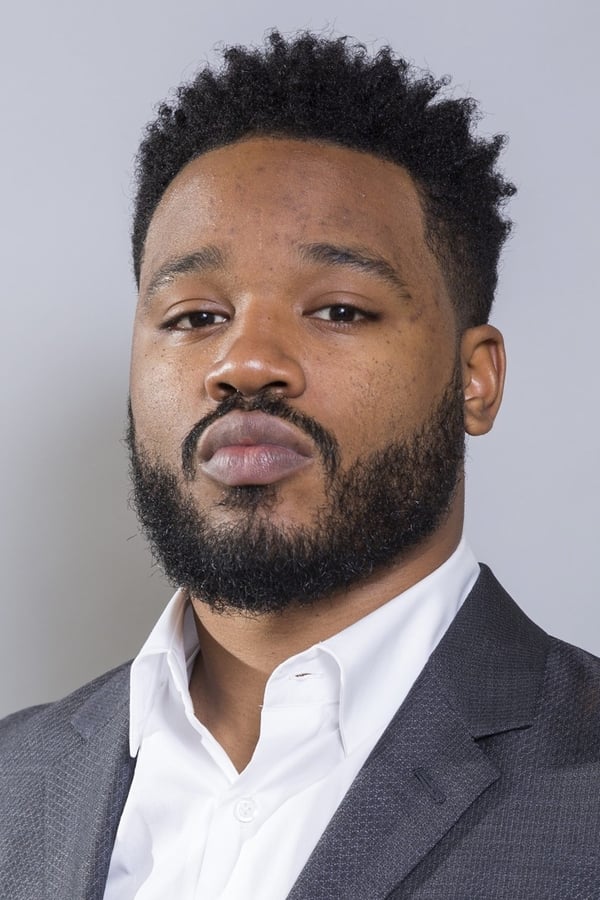
Ryan Coogler
Director

Ryan Coogler
Director
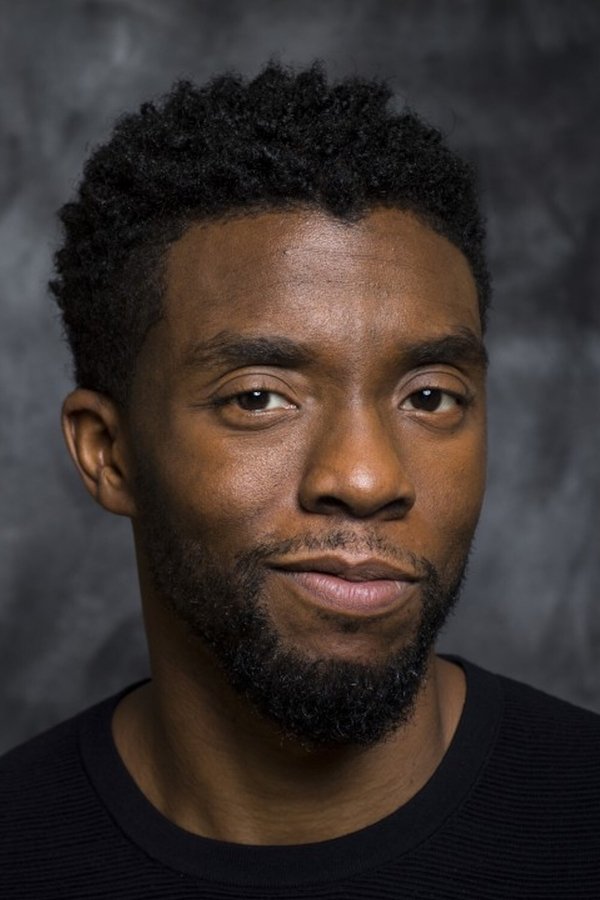
Chadwick Boseman
T'Challa / Black Panther
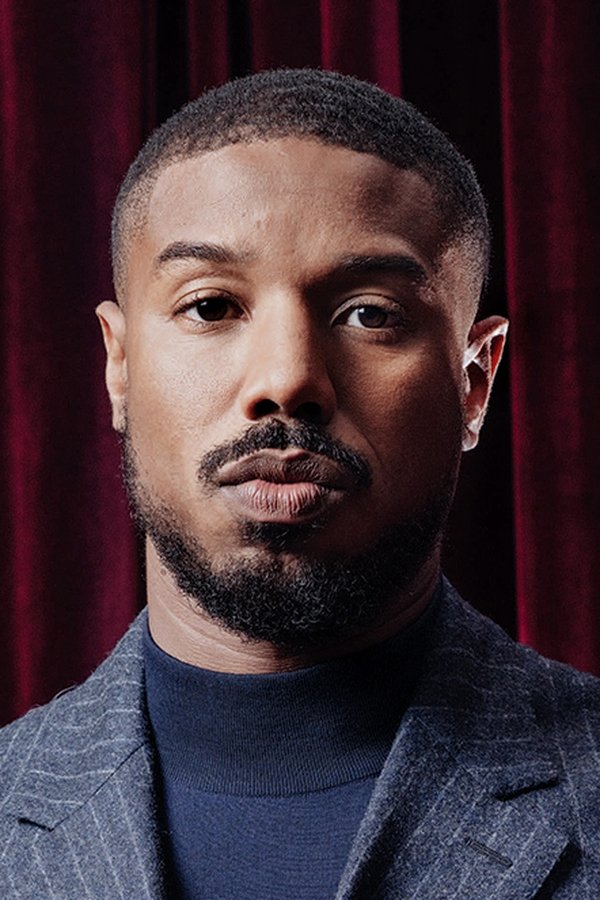
Michael B. Jordan
Erik Killmonger
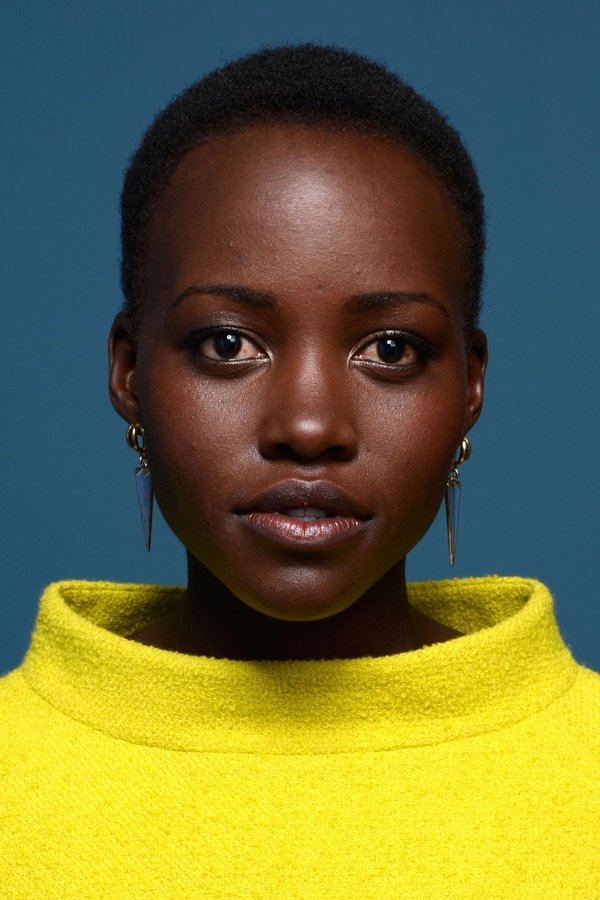
Lupita Nyong'o
Nakia
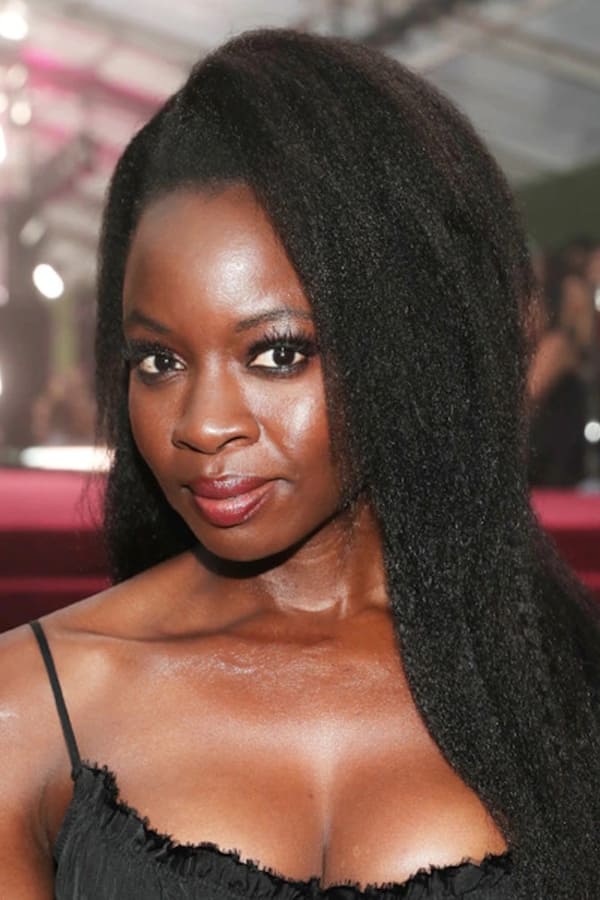
Danai Gurira
Okoye

Martin Freeman
Everett K. Ross
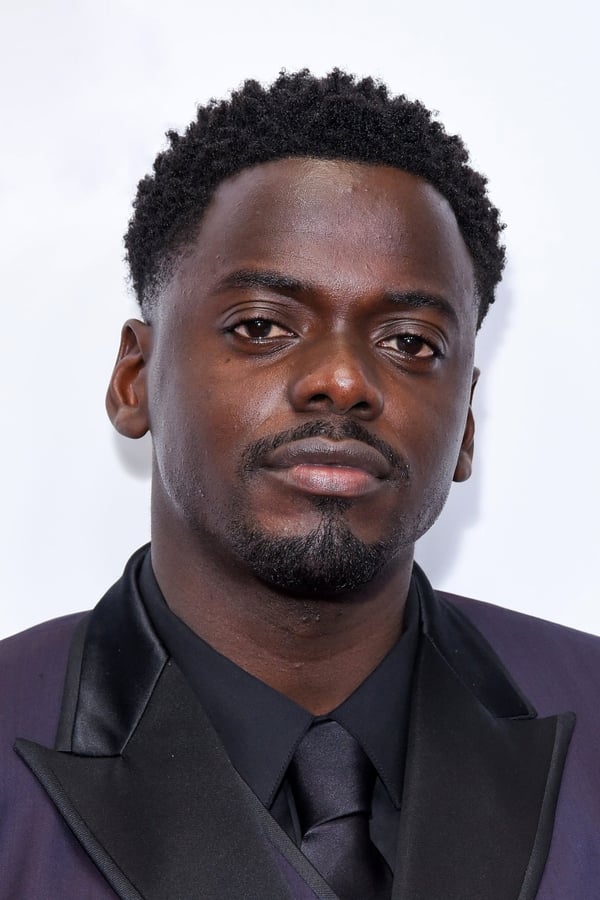
Daniel Kaluuya
W'Kabi
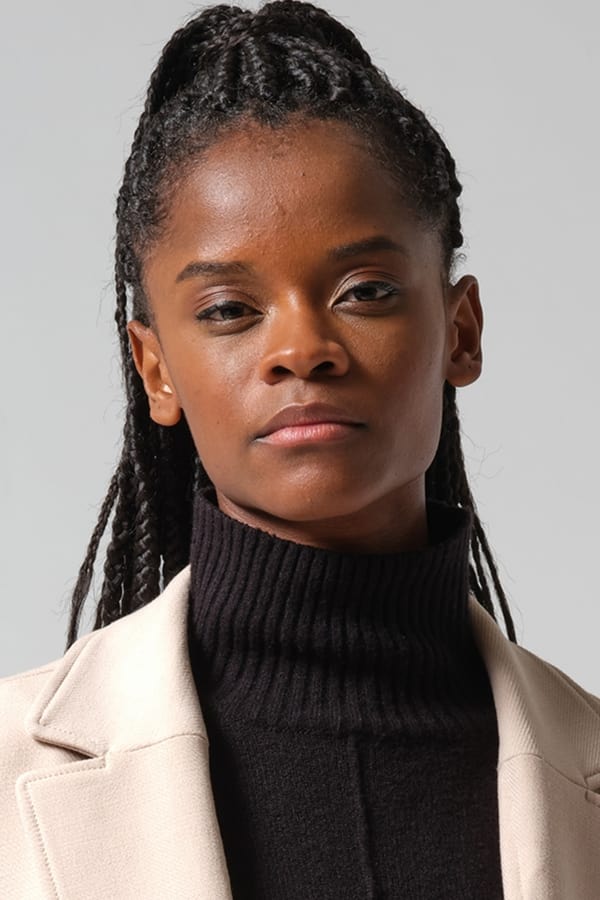
Letitia Wright
Shuri
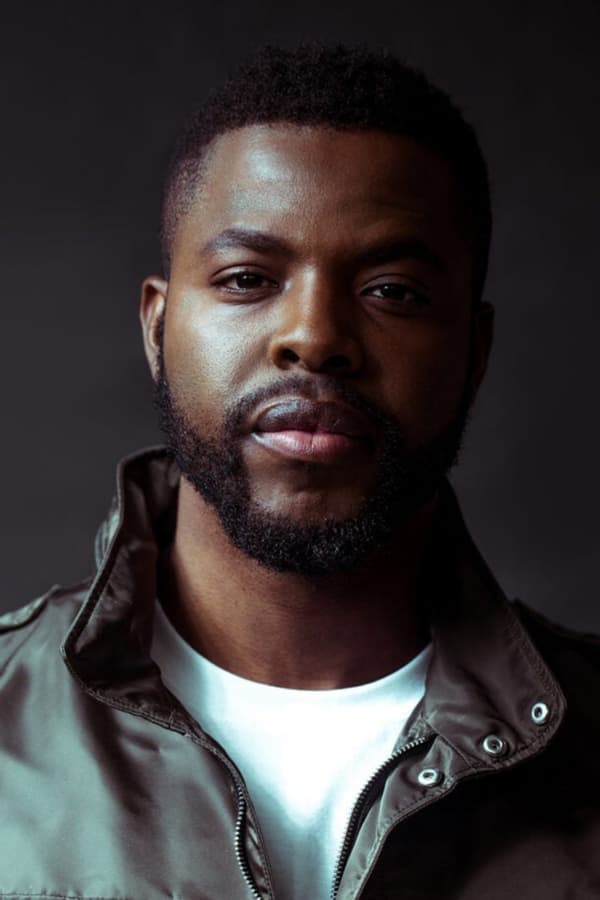
Winston Duke
M'Baku
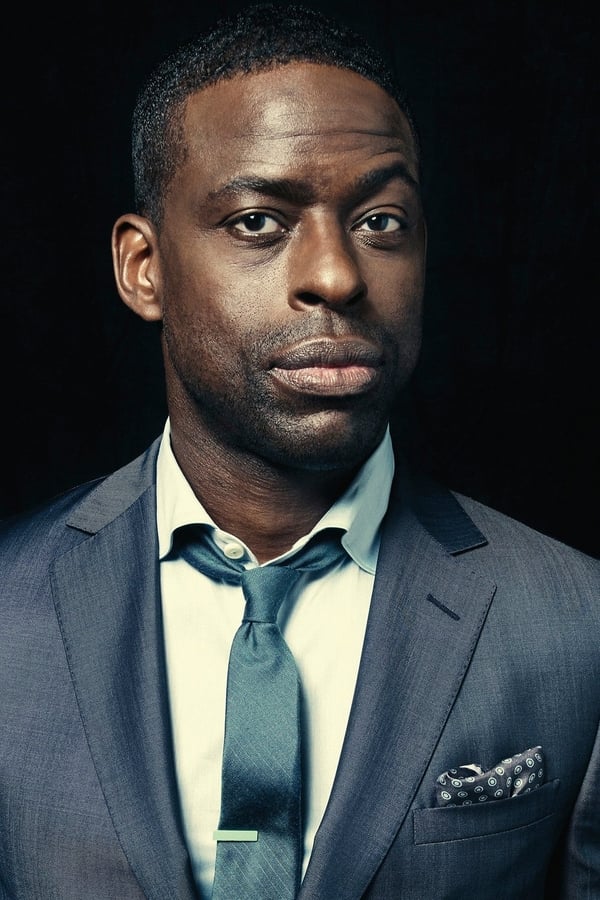
Sterling K. Brown
N'Jobu

Angela Bassett
Ramonda

Forest Whitaker
Zuri
Articles You May Like
In The Heights: The Case for Diversifying Diverse Films
In the film adaptation, director Jon M. Chu turns each musical number into a massive show stopper, with grand set pieces and a wealth of diverse dancers. Yet, in this attempt to show reverence for the people of the Washington Heights barrio, Chu, or maybe more specifically those in charge of casting, left out a crucial part of the community, Afro-Latinos.
Looking at Poppy from 'Wild Child'
Wild Child tells the story of a wealthy, spoiled teenage girl named Poppy Moore who lives in Malibu, California, who attends a boarding school in England. This film shows us how Poppy is first labeled as a fish out of water compared to her boarding school classmates, as she is a wild child, but eventually earns her roommates' friendships and respect.



